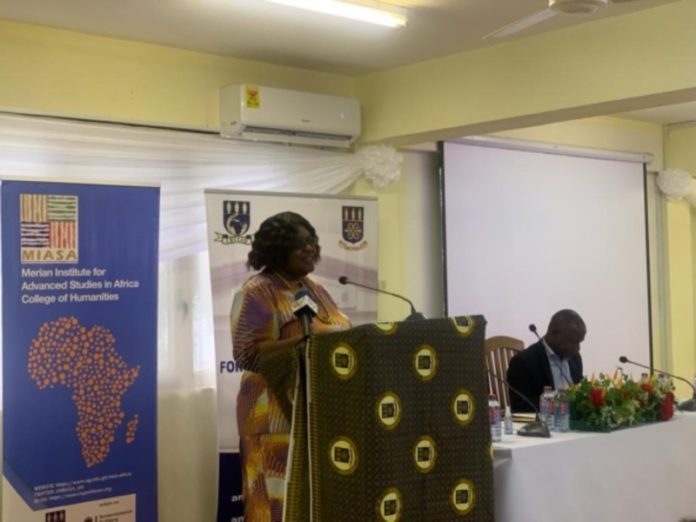A Supreme Court Judge, Her Ladyship Justice Professor Henrietta Mensa-Bonsu has urged mediators and peace builders in Africa to prioritize the opinions and involvement of local communities when implementing peacebuilding initiatives.
Delivering a keynote address at the Merian Institute for Advanced Studies of Africa Conference themed “Sustainable Regional Peacebuilding in Africa: Practices and Disconnects,” Justice Prof. Mensa-Bonsu shared insights on effective peacebuilding strategies.
Referring to the Advisory Group on Peacebuilding’s recommendation that peacebuilding is an inherently political process requiring broad inclusive participation, she stressed the need for involvement at all levels, from state and civil society stakeholders down to the grassroots level.

He emphasized that the wisdom of the host community should be respected and considered during the peacebuilding process.
“The dignity of the host community should be kept in mind and not undermined at every turn. They are not idiots,” she opined.
She cautioned against imposing external priorities on host nations and highlighted the importance of facilitating local ownership of the peacebuilding process.
The Supreme Court Judge further noted that peacebuilding should not be viewed as the burden of outsiders, and interventions should build on the knowledge and resources within the local community.
According to her, an imposition of peacebuilding initiatives would potentially result in the abandonment of projects when external actors leave, especially when local populations are not adequately involved in priority setting and programme selection.

She therefore emphasised that for sustainable peacebuilding, local communities must be engaged in decision-making processes to ensure that initiatives align with national priorities.
“Without involving the local populations in priority setting and program selection, the project would be orphaned as soon as its proponents withdraw funding or move on to other theatres of conflict.” Her address underscored the critical importance of community engagement and local empowerment in building lasting peace in the African context.
Representing the Provost of the Colleges of Humanities, Dr. Grace Diabah delivered a speech emphasizing the significance of the conference.
The Provost acknowledged the ongoing conflicts in the West African region, highlighting the relevance of the conference in addressing key questions related to implementing peacebuilding amidst violence.
Expressing contentment with the conference’s focus, Dr. Grace Diabah conveyed the Provost’s optimism that the shared insights would contribute to successful practices, shaping the future of peacebuilding on the continent.

The Provost, Prof. Daniel Ofori, commended the efforts of MIASA in promoting peace and unity in Africa.
During the conference, MIASA Director Dr. Susann Bailer reiterated the institute’s commitment to making African perspectives more pertinent in the global academic landscape.
She emphasised MIASA’s encouragement of intellectual exchange across disciplinary, cultural, and generational boundaries, fostering collaboration between researchers, policy-makers, and various societal groups.
Dr. Susann Bailer expressed gratitude to Her Ladyship Justice Professor Henrietta Mensa-Bonsu for her participation and extended thanks to the Legon Centre for International Affairs and Diplomacy (LECIAD) for their collaboration in organizing the conference.


